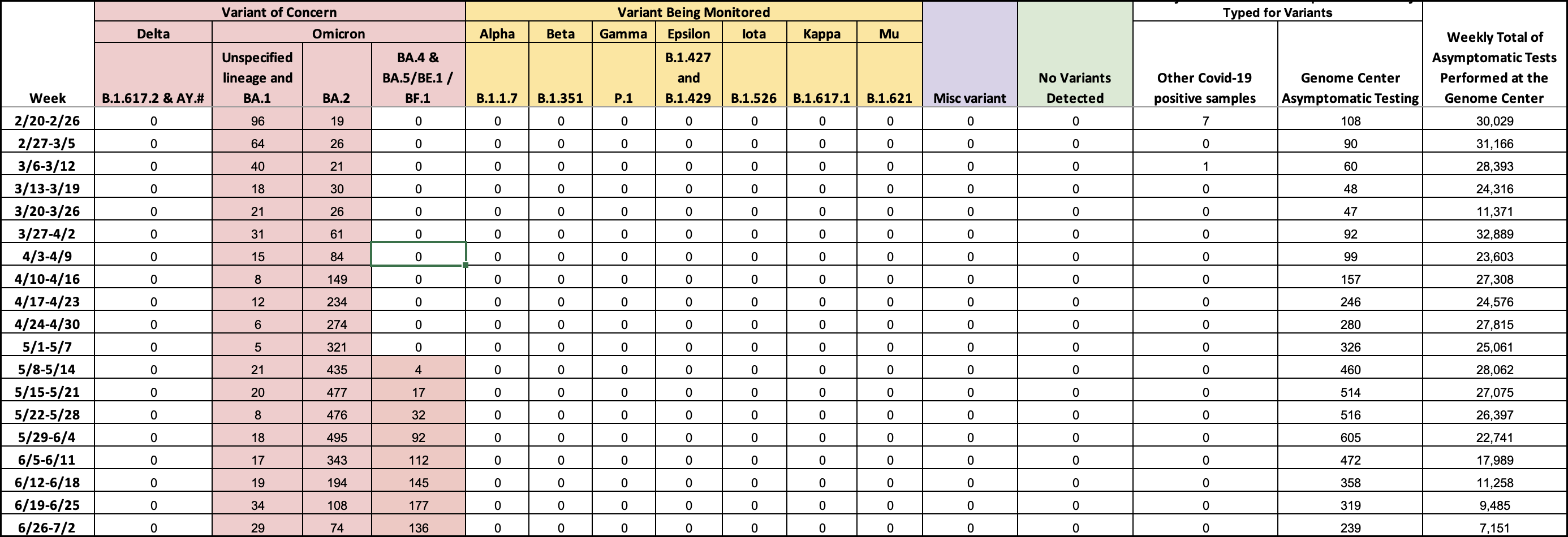
As part of Healthy Davis Together’s free COVID-19 testing operations, positive COVID-19 samples from Yolo County were routinely screened by the UC Davis Genome Center for variants, including Delta, Omicron and other variants of concern and variants of interest. COVID-19 variant monitoring was conducted from February 2021 through June 30, 2022, when the Healthy Davis/Yolo Together testing program ended.
How to read the variant chart:
- Each variant is labeled with its scientific name (e.g. “B.1.1.7”) and the letter of the Greek alphabet assigned by WHO (e.g. “Alpha”).
- Variants of concern are highlighted in red. These variants are more contagious and made up the majority of positive cases in Yolo County.
Genotyping and Sequencing: Why both are important
The variants of the SARS-CoV-2 virus differ from each other at specific locations in the sequence of the viral genome. Each variant has a unique combination of specific sequence changes. Genotyping is a rapid and efficient method that looks for the presence of diagnostic changes that make each variant of concern unique. However, it does not detect changes elsewhere in the genome, and thus does not reveal the presence of new changes. Whole genome sequencing looks at every position in the viral genome and thus detects every change that is present. It is how novel variants are detected. However, it is slower and more expensive than genotyping, so in the interests of getting quick results that can be shared with the community within a few days, the UC Davis Genome Center does genotyping on all positive samples first, followed by sequencing to confirm results and reveal the presence of any new changes.
Additional Resources:
To learn more about COVID-19 variants, please visit the California Department of Public Health (CDPH) and Centers for Disease Control and Prevention (CDC).
If you have questions, please email [email protected].


